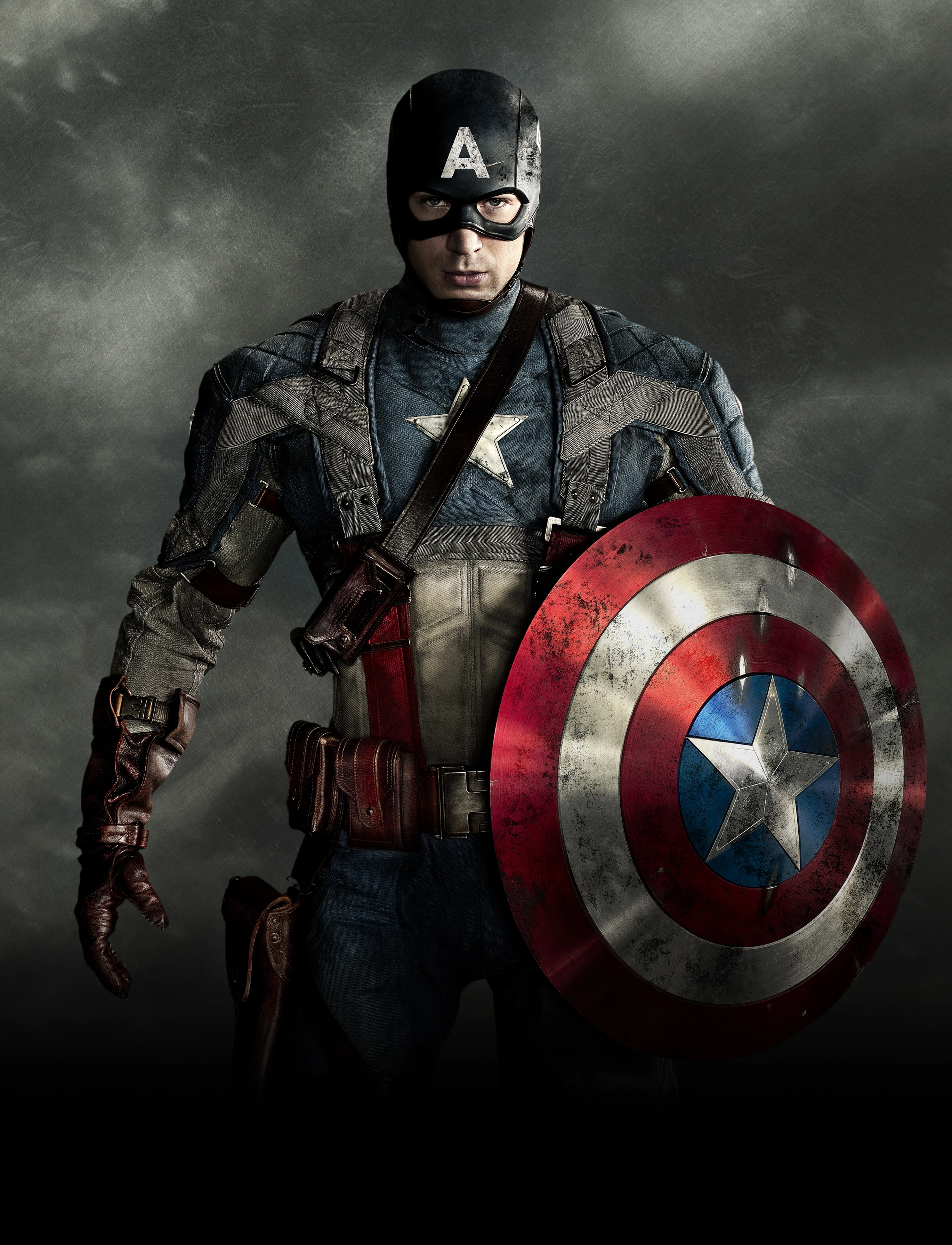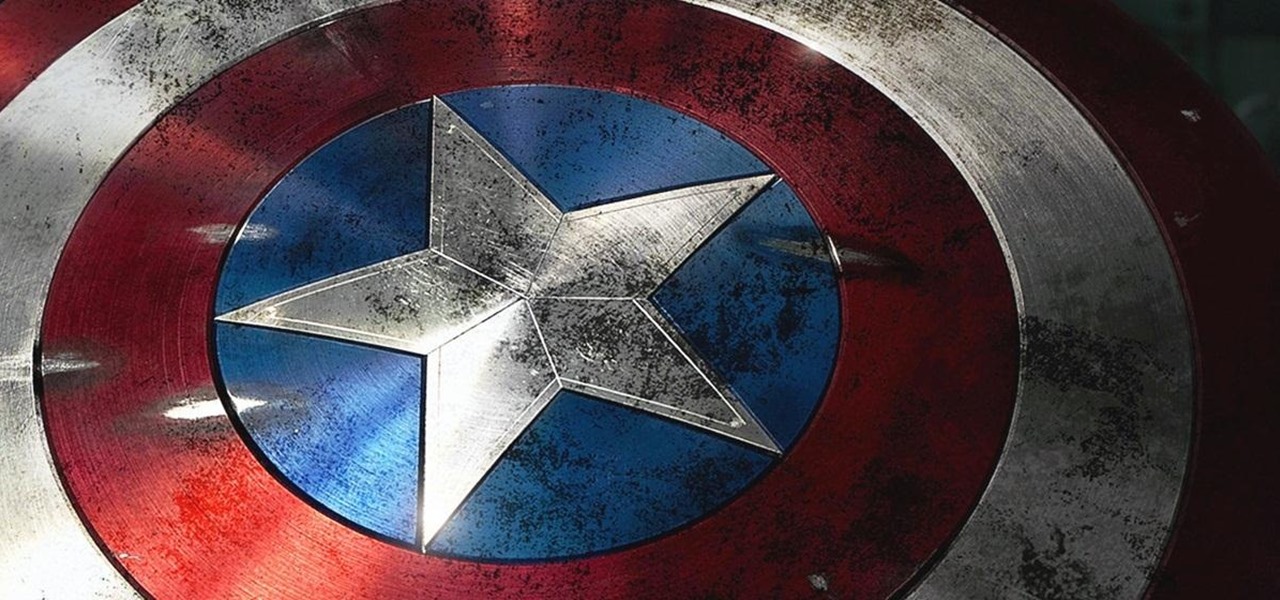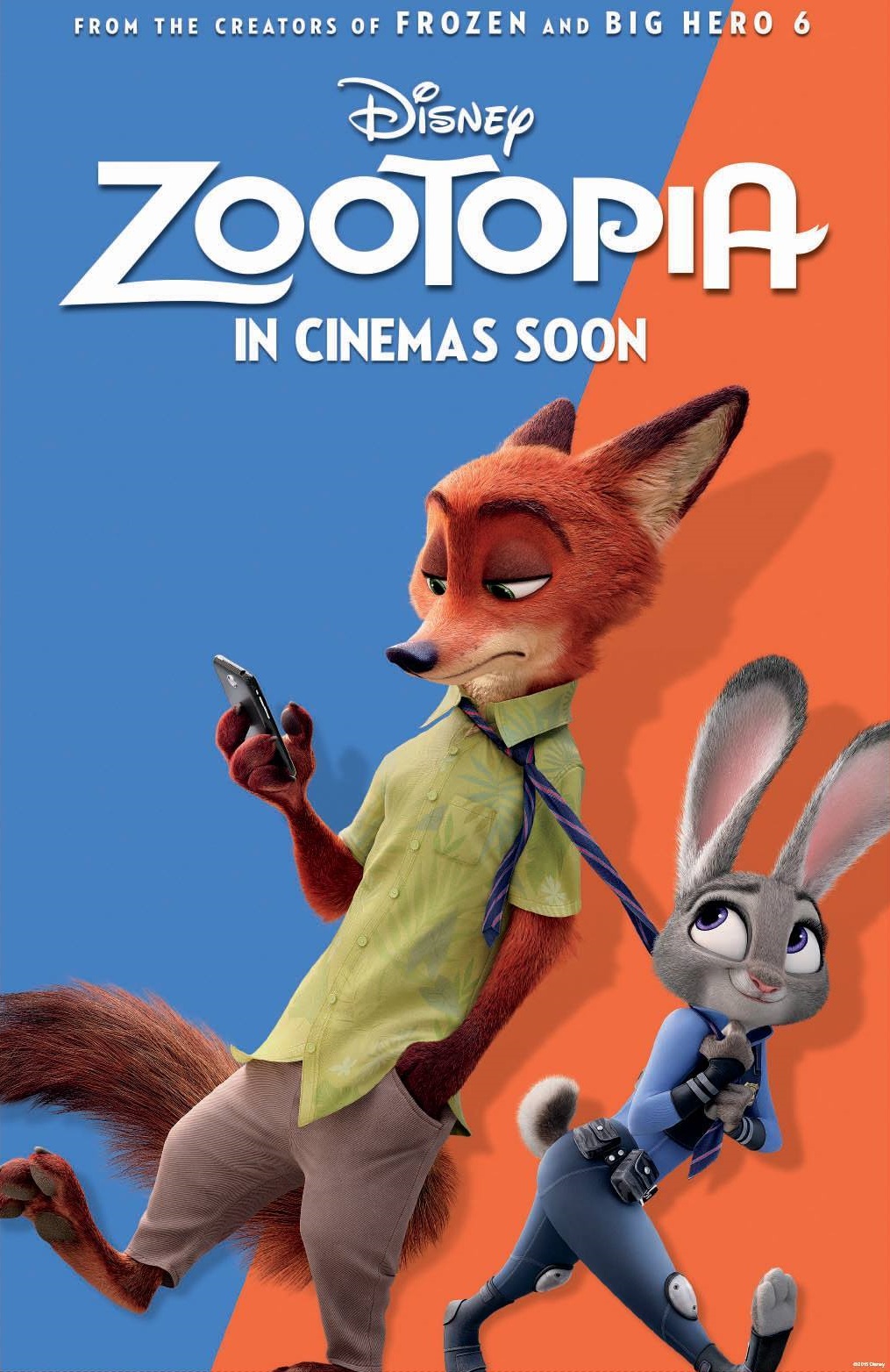Last year,
one of my last projects at University was to write a Dissertation on a subject
in Film. I decided to write about the effect 9/11 had on superhero films, the
official title being 'With Great Powers Comes Great Responsibility: Approaching
and Reflecting 9/11 in Superhero Films'. (Yes I am a massive nerd.) One of the
chapters in my dissertation was a study on 'Captain America: The Winter
Soldier' where I analysed it and compared it to a previous post 9/11 themed
superhero film, 'The Dark Knight'. As we are mere days away from the release of
'Civil War' I thought it would be interesting post this chapter on my blog for
you guys to see. Now remember, this was written a year ago and it is just one section
of a larger piece of work however, it should be an enjoyable read by itself. It
isn't perfect, academic writing wasn't always my strongest suit and if you read
it all the way through you will see some of my own personal fanboy opinion seep
through the cracks. It's something different and for those of you who do read
it all, thank you and I hope you enjoy it!
Captain America: The Winter Soldier follows
Steve Rogers - a superhero named Captain America from 1940’s who was frozen and
then defrosted in the present day - as he adjusts to modern day living whilst
working for a government agency whose ideals do not fully match up with his
own. The film looks at the ideologies of the world security company S.H.I.E.L.D
(Strategic Homeland Intervention, Enforcement and Logistics Division), whose
defences have had to be reassessed after realising the world is a lot bigger
than they thought and now have to deal with the possibility of an
extra-terrestrial attack after the events of the previous film in the
franchise, Avengers Assemble. As with
Man of Steel, the people of Earth in
the Marvel universe have had a recent attack from a different life form, which
has changed their world and their views forever. In their world, super powered
people exist and what was once mythology and legend with the likes of Thor and
his kind, are now a reality that they must accept. They have had their 9/11
like event and must now deal with the aftermath. The Winter Soldier does this in a way that sums up the main
question raised post 9/11, should society sacrifice its freedom for security?
The security company S.H.I.E.L.D propose a plan to use a computer algorithm
that determines a person’s background and to have them eliminated if they pose
a threat to society, even before they commit a crime.
It
just so happens that S.H.I.E.L.D has been infiltrated by an old German Nazi
division named Hydra, who believe that eliminating all these threats will be
the way forward for a better society, but under their control. Although this is a film with a heightened
sense of reality, it is one that very much offers a critical response to the
types of security innovations, which have started coming up in Western society
post 9/11. Innovations such as the increase in CCTV cameras, the approval of
the government to listen in to our conversations and also the ability track our
whereabouts through our mobile devices. After Edward Snowden released documents
to the press, it was found that the American government could even do some of
these acts without a warrant, as reported by The Guardian: ‘The National Security Agency has a secret backdoor
into its vast databases under a legal authority enabling it to search for US
citizens’ email and phone calls without a warrant,’ (BALL & ACKERMAN,
2013).
Captain America is a hero who is out of his own time.
After crashing into an icy landscape during World War Two, he is discovered
frozen, brought back to life and introduced back into modern time. His ideals
are old fashioned, what some would refer to ‘the good old days’ when it was
believed there were clear distinction between good and evil with no grey area,
though his are even more heightened due to his sense of morality and his
character being enforced as the epitome of good and what is right by the
writers. This is represented in the first film Captain America: The First Avenger (JOHNSTON 2011) when he is asked
‘Do you want to kill Nazis?’ and replies ‘I don’t want to kill anyone. I don’t
like bullies; I don’t care where they’re from.’ In the sequel, after
S.H.I.E.L.D lets Captain America know what they have in store with their plans,
assessing who could be a threat and taking them out before they commit a
crime, he replies ‘I thought the
punishment usually comes after the crime?’ He represents the side of the
argument which feels that freedom should not be sacrificed for our security,
should Western society be taking out possible threats before they have actually
committed crime, is this not infringing on their freedom to make a different a
more moral decision. As Captain Americas states in the films; ‘This isn’t
freedom, this is fear.’
This
is not the first post 9/11 film to represent this argument. In 2005,
Christopher Nolan released his gritty and grounded in realism version of Batman
with Batman Begins (Nolan 2005). This
new and contemporary adaptation of the Batman story, saw the hero training with
the Middle Eastern terrorist organisation ‘The League of Shadows’, before
leaving and then having to fight off their leader, Ra’s al Ghul, who attempts
to poison Gotham’s city’s water supply in order to cleanse the city of its scum
and in turn, its crime. An ideology that’s not too dissimilar from Batman’s own
of stopping crime but with a more brutal and lethal approach that does not go
with Batman’s moralistic stance. Batman’s ideology is similar to the way
Captain America would not hesitate to stop the bad guys but not at the cost of
his country’s freedom. Like Batman, Captain America uses violent techniques to
subdue his enemies. In one of the opening action sequences of The Winter Soldier, the Captain jumps
aboard a hijacked ship before stealthily killing the criminals who have taken
his fellow S.H.I.E.L.D colleagues prisoner. This kind of brutality shows that
Steve Rogers is someone who will do what it takes to protect his country and
its values; he has a different moralistic stance to Batman who does not kill
under any circumstance, even for his country or for Gotham, but instead does
whatever it takes to apprehend the threat. Superman is much like Batman in the
sense that he does not want to kill - although he is pushed to do so in Man of Steel – In the comic his values
are more like Captain America’s; ‘Superman represents not only an ideal of
transcendent moral and physical perfection, but also a harmonious and ordered
universe with clear distinctions between right and wrong.’ (HASSLER-FOREST,
2012: 38).
In
the second instalment of the Batman franchise, The Dark Knight, our hero must face the embodiment of post 9/11
fear, The Joker, a terrorist who has no other apparent motive but to cause
chaos. His only goal is to push Batman so far as to make him kill him. Only then
will The Joker feel he has won. In many ways, The Joker embodies terrorist
organisations like Al Qaeda who launch their attacks in order to get a response
and retaliation from the Western world, which would then turn more people
against the West. John Ip says ‘The Joker himself presents as a terrorist
figure who intimidates, threatens and inflicts violence and mayhem upon a
civilian population in furtherance of his anarchic ideological purpose.’ (2011).
The Dark Knight is very obvious in
its political portrayal of a world post 9/11 and a lot of the imagery used in
the film complements the themes, as discussed by Will Brooker:
The
explicit description of Joker as a terrorist, and visual motifs such as the
poster’s image of a burning skyscraper and the slow camera glide into the side
of a building, punctuated by an explosion, that starts the film (2012: 200).
Unlike The Joker who
represents fear and destruction. John Ip believes that Batman himself, throughout
The Dark Knight, offers a commentary
on the Bush administration after the events of 9/11, most particularly in a
scene where Batman tortures The Joker in order to get information out of him.
However, Ip argues that the ineffectiveness of the torture itself does not
endorse the administration but instead criticises it:
The
Bush Administration’s authorization of the use of torture and coercion during
the war on terrorism, despite legal prohibitions both at the domestic and
international level was perhaps the starkest indicator of the paradigm shift
that occurred after 9/11... The Dark
Knight’s depiction of the effectiveness of torture and coercive
interrogation is therefore sceptical: at no point does it lead to the divulging
of any useful information. Therefore the film is plainly not an endorsement of
the Bush Administrations war on terror. Indeed, it is better seen as a critique
(2011).
As explicitly as his name suggests, Captain America is
the symbol of the American way for a global audience to witness. Jason Dittmer
argues this point and that Captain America represents nationalism at its
finest:
Significant
to this role is Captain America’s ability to connect the political projects of
American nationalism, internal order, and foreign policy (all formulated at the
national or global scale) with the scale of the individual, or the body. The
character of Captain America connects these scales by literally embodying
American identity, presenting for readers a hero both of, and for, the nation.
(2005)
Dittmer goes on to argue,
that characters like Captain America and other influential pop culture heroes,
take events from our society and create ‘geopolitical’ scripts surrounding
them, that; ‘mold common perceptions of political events, [to create a] key to a
full understanding of both national identities [both American and foreign]’ (2005).
This comes relates to Adorno and Horkeimer’s ‘Culture Industry’ theory, that
films and other pop culture are no longer works of art, but cogs in a machine
to throw out the ideologies of its creators to mass audiences in order to shape
their understanding. Marvel Studios are a household name now, and though their
comics have only reached a limited amount of people, their films have had
global success (Box Office Mojo). Captain
America: The Winter Soldier is a political piece; it’s addressing what it
means to be a patriotic citizen of the U.S.A in a time when the country’s
values and freedoms are being redesigned under the pretext of improving
security but at the expense of freedom, after such events as 9/11. The heroes
of the film are the people who stand up and oppose Hydra’s ideology, not just
the spy agents of the company but the small everyday manual workers, even
though the consequence of this may mean death. This is shown in one scene where
a S.H.I.E.L.D operator has a gun held at his head by a Hydra agent, demanding
him to start the algorithm that will decide who poses a threat to society and
then kill them. Even with a gun held to his head, this worker refuses, knowing
that he will be shot, because he believes in Captain America and the American
way, he says ‘I’m not going to launch those ships, Captain’s orders.’.
As in Man of Steel,
there is also 9/11 like destruction in Captain
America: The Winter Soldier. This destruction comes in the form of three
Hellicarriers – similar to flying versions of aircraft landing ships – that
crash over Washington, two into each other before falling into the sea, and one
straight into a building. Unlike Man of
Steel, this destruction has purpose; it’s the only way that Captain America
and his allies can stop a lot more people being killed. It is also a
representation of the downfall of a terrorist ideology that has infiltrated
American security company S.H.IE.L.D. The Hellicarrier that crashes into the
building, crashes into the main headquarters of S.H.I.E.L.D, the organisation
that has been hijacked, that was the main defence in global security. As with
9/11, this event shakes the world, without this security who will protect the
world from threats beyond the Earth’s arsenal? Man of Steel uses destruction as a spectacle and even though in The Winter Soldier it is also something
which looks great on the big screen, the special effects are on a smaller scale
and characters relationships are the moving force of the action rather than big
explosions, they are used as a means to an end. The people involved have been
explored, from the S.H.I.E.L.D workers who have had their friends and
colleagues turn on them, to the Winter Soldier himself, an old friend of
Steve’s brainwashed into carrying out Hydra’s demands, to main villain,
Alexander Pierce the conductor of the event, so convinced by his own ideologies
that he sees no other way to save the world. The film shows random workers
stand up for their country, they are not merely cannon fodder but innocents
trapped by Hydra. Most get out, but for those who don’t, the audience is moved
by their situation, there are real perils at stake when it comes to watching
the destruction play out on screen.
As discussed in the first chapter, Captain America has
always been a piece of propaganda, from his first issue to his latest; he has
always worn the flag as his costume in one form or another. It can be argued
that, in The Winter Soldier, he is
not as blatant a piece of propaganda. His costume is less bright, no longer
wearing the colours of the flag, this could represent how America has lost its
way and doesn’t stand for what it should anymore. He is faced with many
obstacles throughout the film, but none of them deter him from being any
different a person by the end of the film. He has no character arc and other
than he cannot be changed, and that is what makes Captain America special. Even
though his views are old fashioned, and this gets in the way of him dealing
with 21st century life, this also means he offers a historical
perspective on the war on terror, one that sees his country’s freedom being
sacrificed, and this is not okay with him. The directors discuss how they made
a conscious decision to make this an integral part of the film:
We were all reading the articles that were coming
out questioning drone strikes, pre-emptive strikes, civil liberties—Obama
talking about who they would kill, y'know? We wanted to put all of that into
the film because it would be a contrast to Cap's greatest-generation [way of
thinking]. (RUSSO, 2014)
The Winter Soldier is
not your standard superhero film; in fact it is more a political thriller than
anything else. It is about change and what is the right and moral thing to do
during that change. Many things changed whilst Captain America was frozen, but
he still sees a society of good people who have been through a lot. He
symbolises a time when his countries values were considered at their best and
America truly was fighting the good fight against evil, his character being in
the present day and struggling to deal with fact that this has changed
represents that America is no longer good and walks the line between good and
bad. This is what he stands up for, to keep society level headed like it was
1940’s. This may mean that he stands for a Western society that makes him a
form of propaganda, but that does not mean that he is necessarily a negative
piece of propaganda. Because he stands for good and what is right, he is a good
character that we should all aspire to be like, he wears the American flag as
his costume because that’s what he wore in the 1940’s, his change from a dark
blue and then back to his classic costume by the end of The Winter Soldier shows that he is not happy with the change in
society during his time away and that things should revert back to his generations
way of thinking.
DITTMER, Jason. 2005. ‘Captain America's Empire: Reflections on
Identity, Popular Culture, and Post-9/11 Geopolitics’ in Annals of the Association of American Geographers. [online] 95(3). Available through: Falmouth
University Library Website <http://library.fxplus.ac.uk/ > [accessed on 10th March 2015].
Bibliography
ADORNO, Theodor W. and HORKHEIMER, Max. 1944.
Dialectic of Enlightenment. New York:
Social Studies Association Inc.
BALL, James and ACKERMAN, Spencer. 2013. ‘NSA
loophole allows warrantless search for US citizens’ emails and phone calls’ The Guardian. [online] Available at <http://www.theguardian.com/world/2013/aug/09/nsa-loophole-warrantless-searches-email-calls> [accessed 15th
April 2015].
BOX OFFICE MOJO. 2015. Marvel Cinematic
Universe. Box Office Mojo [online]. Available at: <http://www.boxofficemojo.com/franchises/chart/?id=avengers.htm
> [accessed 11th May 2015].
BROOKER, Will. 2012. Hunting
the Dark Knight: Twenty-First Century Batman. London: I.B Tauris
& Co.
DITTMER, Jason. 2005. ‘Captain America's Empire: Reflections on
Identity, Popular Culture, and Post-9/11 Geopolitics’ in Annals of the Association of American Geographers. [online] 95(3). Available through: Falmouth
University Library Website <http://library.fxplus.ac.uk/ > [accessed on 10th March 2015].
HASSLER-FOREST, Dan. 2012. Capitalist Superheroes: Caped Crusaders in
the Neoliberal Age. Croydon: Zero Books.
RUSSO, Anthony. 2014. ‘Soldier showdown: Joe
and Anthony Russo take the helm of Captain America franchise’ in Film Journal. [online] Available at:
<http://www.filmjournal.com/content/soldier-showdown-joe-and-anthony-russo-take-helm-%E2%80%98captain-america%E2%80%99-franchise> [accessed on 2nd
May 2015].
Filmography
JOHNSTON, Joe. 2011. Captain America: The First Avenger [Film].
NOLAN, Christopher. 2005. Batman Begins [Film].
NOLAN, Christopher. 2008. The Dark Knight [Film].
PYUN, Albert. 1990. Captain America [Film].
RUSSO, Joe and Anthony. 2014. Captain America: The Winter Soldier
[Film].
SNYDER, Zack. 2013. Man of Steel [Film].
If you made it this far then well done! I hope you enjoyed this post and if you did let me know in the comments below!
Thanks for reading!









